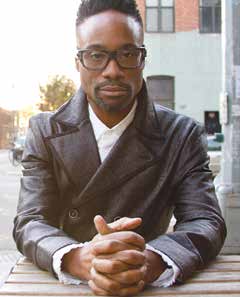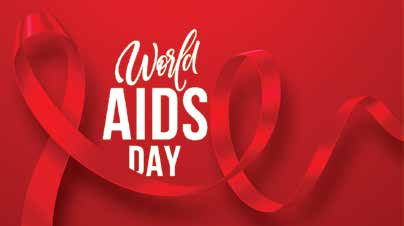
Billy Porter has been a queer icon for nearly a decade, at least since he won the 2013 Tony Award for Best Actor in a Musical for his role as “Lola” in Kinky Boots. For years Porter has unabashedly sashayed down red carpets wearing couture gowns and other often-flamboyant gender-bending attire. He would seem not only to have come out of the closet ages ago, but also to have kicked down the door with little left to hide.
And yet it was not until May of this year that Porter broke his 14-year public silence about being HIV positive. Aside from the most intimate members of his circle, he kept his diagnosis hidden from his Pose castmates, collaborators, and even his mother.
Part of Porter’s hesitancy must have been due to the post-traumatic stress of the fateful year, 2007, when he first learned of his HIV status. In February of that year he was diagnosed with Type 2 diabetes. In March, he signed bankruptcy papers. In June of 2007, he was told that he was HIV positive.
Closer to our own social networks here in San Francisco is another star: Patrik Gallineaux. If you have ever seen him on stage—or even just walking around the Castro—you likely have stopped to take an extra look. A trained dancer since childhood (his mother runs a dance studio), Gallineaux makes simple strolling seem like an art form. His entire look—from gorgeously coiffed hair to eye-catching makeup and clothing—appears to be movie set ready. His personal style is unmistakable; there is no one else like him.
Gallineaux has been a regular at many local fundraisers, helping to raise money for the Academy of Friends, the Richmond/Ermet Aid Foundation (where he sits on the board), and much more. Until his recent hiatus as the National LGBTQ Ambassador at Stoli USA, he was also frequently associated with Stoli-related events here in San Francisco and nationwide.
Gallineaux would seem to be as far out of the closet as one could be, and yet, like Porter, it took him years to publicly come out as HIV positive (see his feature in this issue of the San Francisco Bay Times). Of course, health matters of all kinds may not be disclosed by many of us to our friends, family members, and colleagues for a variety of reasons. One could be that we just do not want to talk about the issue and make it part of our primary identity. Another could be fear of losing work. Yet another could be worry over stigma associated with the condition.
In the case of HIV/AIDS, all of these concerns and more may come into play. Supportive networks can be key to overcoming the challenges, making observances such as World AIDS Day all the more important. The red ribbon associated with World AIDS Day, December 1, is the global symbol for solidarity with HIV-positive people and those living with AIDS.
The latest pandemic, COVID-19, also reminds how we all may benefit from the ongoing medical research on HIV/AIDS. Just a few weeks ago, drug company giant Pfizer announced that it has developed a new pill—part of a class of medicines called protease inhibitors—that works by inhibiting an enzyme the coronavirus needs to replicate in human cells. The technology behind protease inhibitors was made possible largely due to research on treatments for HIV/AIDS. (Protease inhibitors also treat hepatitis C and certain other diseases.)
The more role models who are HIV positive make public their diagnosis, the easier it will be for others in similar situations to follow their lead. This will help to end debilitating stigma and to improve fundraising for HIV-related research that often informs breakthroughs concerning not only COVID-19, but also cancer and much more.
So thank you, Billy and Patrik, and to all others who have bravely come out—and come out again.

On Wednesday, December 1, the National AIDS Memorial will host the annual World AIDS Day National Observance presented virtually. This free event will begin at 8:30 am with a series of impactful conversations with national leaders on important topics about HIV/AIDS and health and social justice.
Here is just a partial list of some of this year’s featured speakers:
Dr. Anthony Fauci;
White House National AIDS Policy Director Harold Phillips;
U.S. Senator Raphael Warnock;
Congresswoman Barbara Lee;
Paul Kawata, Executive Director, NMAC;
Pose Co-Creator and Executive Producer Steven Canals and Co-Executive Producer Our Lady J;
Toni Newman, Interim CEO, Black AIDS Institute;
Leonard Valentino, M.D., President & CEO, National Hemophilia Foundation;
Monica Gandhi, M.D., M.P.H., Professor of Medicine and Division of HIV, UCSF;
Suzanne Brennan Firstenburg, Creator of In America: Remember;
Anthoula Katsimatides, Founding Member, 9-11 Memorial and Museum;
Bishop O.C. Allen, Executive Director, Vision Community Foundation;
and Dr. Shonda Jones, PI & Founder, The Gilead COMPASS Initiative Faith Coordinating Center.
For more information: https://tinyurl.com/4nr8sd3s
Published on November 18, 2021
Recent Comments